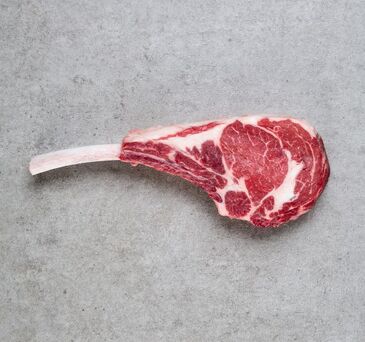At John Gilmour Butchers, we love championing our local farmers and supporting the best quality meats in Scotland and the U.K. We often get asked about the environmental impact of farming, specifically cattle farming – so we wanted to share the facts about the sustainability of British farming. Cattle farming does produce emissions that contribute to climate change, however, the farming industry is well on its way to significantly reducing this impact.
This information is taken from this excellent, well researched article from Countryside Online. If you wish to find this article or are looking for more detailed information, please click here.
Soil and Biodiversity Benefits
There are environmental benefits to farming. One of the main benefits of livestock farming is soil fertility.
“Livestock plays an important role in maintaining and enhancing the soil used to grow crops too. The introduction of grass and clover leys and livestock into arable crop rotations is beneficial to soil health and fertility, with manure from grazing livestock helping to boost soil organic matter.
Leicestershire arable farmer Phil Jarvis has introduced four-year grass and clover leys and shorter two-year herbal leys which are grazed by both his neighbour’s sheep and his own Leicester Longwools. This regenerative approach helps build soil fertility, health and combat grass weeds while using some of the current agri-environment options in Countryside Stewardship” (Countryside Online).
Further, livestock farming also contributes to increased biodiversity: “Land abandonment poses one of the greatest threats to biodiversity as it removes the brakes on succession. Most open landscapes in the UK will revert from grassland to scrub and, ultimately, to woodland as large plants reach for the light and outcompete many smaller species. Grazing and disturbance by livestock – particularly by native breeds that can outwinter - ‘re-sets’ this ecological clock, allowing a high diversity of these valuable early-succession flowers to thrive in open sunlight. Dr Trevor Dines, Plantlife Botanical Specialist www.plantlife.org – from Countryside Online
What the industry is doing
Many industrial bodies and farms are adding natural additives to cattle feed in order to significantly reduce methane emissions. In fact, a few months ago, we discussed the addition of red seaweed to cattle feed, a practice that based on studies by the University of California and others, reduces methane emissions from cattle by up to 85%. To read more about this practice and how our partner farmers were involved, click here.
Welfare
British farming has one of the highest welfare standards in the world. British farming has one of the lowest antibiotic use statistics in Europe, and is one of only four countries to receive the highest level in the Animal Protection Index. Britain hopes to be an example for the rest of the world of how farming can be done sustainably, while treating livestock fairly.
To read more about the sustainability of British farming, read this article by Countryside Online.
DISCOVER OUR OTHER Articles

The John Gilmour Butchers Black Gold Range
31.03.2024 NewsRead MoreUnparalleled in reputation, John Gilmour’s Award Winning Aberdeen Angus - Black Gold Range is a premium steak range that sets restaurants apart from their competition.

Showcasing Scotland 2024
13.03.2024 NewsRead MoreWe were absolutely delighted to attend Showcasing Scotland 2024, an annual event by Scotland Food and Drink

The Tomahawk Steak
10.02.2024 NewsRead MoreIn the world of premium cuts of meat, the tomahawk steak stands out—not just for its impressive size and flavour, but for the experience it offers both the cook and the diner. As butchers, we're...



